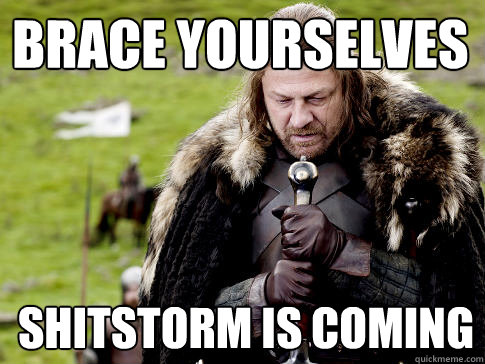So, lets say we want have an Article model with tags array:
class Article include Mongoid::Document include Mongoid::Timestamps field :content, type: String, default: '' field :tags, type: Array, default: [] end
Let's try to pick any similar first (without similarity level)
We have an article, that has some tags (%w{ ruby rails mongoid mongodb }) and we would like to get similar articles. Nothing special (yet):
current_article = Article.first similar = Article.in tags: current_article.tags
Let's also pick elements without our base article (current_article) though we decided to get similar articles, not similar or equal:
Article .ne(_id: current_article.id) .in(tags: current_article.tags)
We could even refactor it a bit...
class Article
include Mongoid::Document
include Mongoid::Timestamps
scope :exclude, -> article { ne(_id: article.id) }
scope :similar_to, -> article { exclude(article).in(tags: article.tags ) }
field :content, type: String, default: ''
field :tags, type: Array, default: []
def similar
@similar ||= self.class.similar_to self
end
end
# Example usage:
current_article.similar #=> [Article, Article]
Seems pretty decent, but this won't give us most similar articles. It will just return most recent, that have equal at least one tag with our current_article. What should we do then?
Mongo Aggregation Framework to the rescue
To get such information, sorted in a proper way, we need to perform following steps:
- Don't include current_article in resultset
- Get all articles (except current one), that have at least one tag as current_article (we did this earlier)
- Count how many similar tags occurred in each of articles
- Sort articles by similarity
- Take first 10 articles
Step 1 - Excluding
# Mongoid
Article.where(id: {"$ne" => current_article.id})
# Mongo (this is still in Ruby - not in Mongo shell!)
"$match" => {
_id: { "$ne" => current_article.id }
}
Step 2 - All articles with at least one similar tag
# Mongoid
Article.in(tags: current_article.tags )
# Mongo (this is still in Ruby - not in Mongo shell!)
"$match" => {
tags: { "$in" => %w{ ruby rails mongoid mongodb } }
}
Step 3 - Unwind by tags
If you're not familiar with unwind look here. That way, we get article copy for every tag for each article.
{ "$unwind" => "$tags" }
Step 4 - Second matching
You may wonder, why we filter results again. Well The initial filtering was not required, but we did this to remove all non-related articles, so the data set is much smaller. Unfortunately unwind created document copy per each of the tags - even those that we don't want to. That's why we have to filter it again.
"$match" => {
tags: { "$in" => %w{ ruby rails mongoid mongodb } }
}
Note that we don't need to filter out again by ID, since in incoming dataset we already don't have the current_article document instance.
Step 5 - Grouping
Now we can group by documents ID. Also we will add sum for grouping, so we will know similarity level for each document. One point in sum equals one similar matching tag.
{ "$group" => {
_id: "$_id",
matches: {"$sum" =>1}
}
}
Step 6 - Sorting
Now we can sort by sum to have elements in descending order (most similar on top):
{ "$sort" => {matches:-1} }
Step 7 - 10 first elements
And the last step - limiting:
{ "$limit" => 10 }
Making it all work together
In order to execute this whole code in Ruby, we need to use Article.collection.aggregate method:
results = Article.collection.aggregate(
{
"$match" => {
tags: {
"$in" => current_article.tags
},
_id: {
"$ne" => current_article.id
}
},
},
{
"$unwind" => "$tags"
},
{
"$match" => {
tags: {
"$in" => current_article.tags
}
}
},
{
"$group" => {
_id: "$_id",
matches: { "$sum" =>1 }
}
},
{
"$sort" => { matches: -1 }
},
{
"$limit" => 10
}
)
We won't get Ruby objects as a result (we'll get an array of hashes). We can process it further if we need similarity level, but if we just need similar articles (for example to display them) we can just:
Article.find results.map(&:first).map(&:last)

